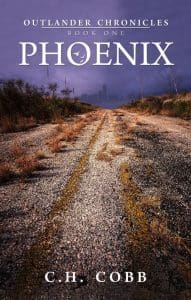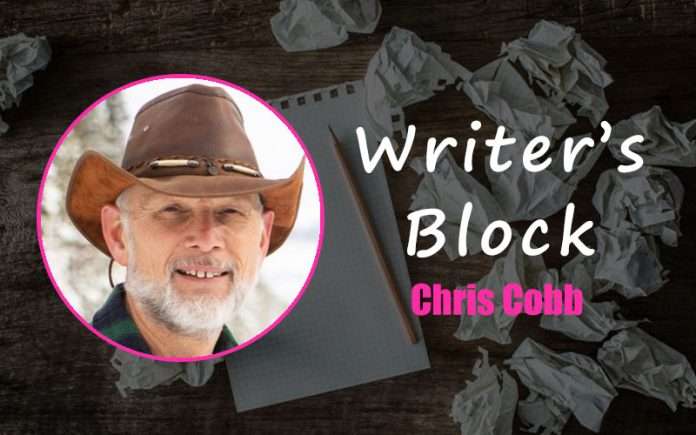The year is 2060. Between global war and a virulent, lethal pandemic the total population of the planet is headed south of eight million. It is a population insufficient to support any of the features characterize modern society: there is no power generation or refining, no manufacturing, no transportation or communication systems, no government, not even local government. Rudimentary agriculture provides subsistence living for the survivors.
Sixty years later, in 2120, the situation is even worse. The population that remains has divided itself into two separate cultures: tiny agricultural communities, or violent raiders (known as Anarchs) preying on the communities. Crumbling cities and towns, made up of abandoned, decaying structures, are scavenged for whatever rotting goods from the earlier times might still be usable.

Amid the despair, however, flickers of hope appear near the ruins of Philadelphia, Pennsylvania. As Jacen Chester (now the last survivor of his tiny community) buries his father, the twenty-three-year-old realizes that there must be more to life than merely avoiding death. In the midst of his grief, he decides that, somehow, he’s going to replant civilization. An older, mysterious stranger named Hakim joins Jacen in the pursuit of Jacen’s dream. But Jacen and Hakim are living in an exceedingly violent world. Beyond their own disagreements with each other, roving bands of Anarchs threaten the entire project.
This is the premise of the Outlander Chronicles novels, an action/adventure series that also serves as a coming-of-age tale for Jacen. I am writing about this series today because the current-day West is experiencing many of the same cultural currents that brought down the civilized world in the Outlander series. In our schools and universities, our young people are learning a very truncated version of western culture in general and America in particular. They are being taught, with very little nuance, that America is characterized by racism, injustice, colonialism, and oppression of every sort. Our young people are being taught to hate our country. America does indeed have its sins but the picture often being presented is wildly skewed, as though America’s failings are unique among the nations. They are not. On balance, America has actually served as a significant force for good in the world. That sentiment is largely ridiculed in the academic community. This will not end well.
What follows is a brief excerpt from Outlander Chronicles: Phoenix, as Hakim explains to Jacen how the West for all practical purposes committed suicide (even as it is doing now in 2023).
“Now we come to our point. Jacen, if you believed that your civilization was the cause of virtually all evil and oppression in the world, would you work hard to save your civilization from collapse or a grave mortal threat?”
“No, of course not. If I truly believed it was evil, I would make no move to save it. I might even destroy it myself,” Jacen said, understanding beginning to glimmer in his eyes.
“That, then, is what I meant. ‘They dehumanized themselves, and found themselves not worth saving.’ Western culture destroyed itself, and their academics, by and large, administered the poison. Their critique of the culture became a condemnation of the culture through a radicalized and selective reinterpretation of the facts. They made the classic mistake of historiography: they judged the past by the present. The irony is, despite their denial that universal narratives exist, by which morals and knowledge and cultures can be judged, they turned their own favorite narrative into a universally applicable one, applied it to the past, and found the past wanting. They were fatally inconsistent.”
“So your claim, Hakim, is that Western culture committed a sort of cultural suicide?”
“That’s exactly what I am saying, Jacen. One of the West’s own historians, a British scholar by the name of Toynbee, put forward the idea that ‘civilizations die from suicide, not by murder.’ I think that is exactly what happened to the West. Now, mind you, there is a lot more to the story, such as the war that pushed them over the edge, but the condition that really destroyed the West was not outside pressure but internal decay.
“At just the time it was most needed, America no longer had the moral authority to correct its own excesses. It had demonized its Western heritage, which contained the foundations of its shared sense of morality. In the arts, law, politics, and the academy, the dominant view was that America needed to be destroyed, or at least greatly weakened. Nations eventually tend to act out the dominant beliefs of their cultural gatekeepers. And so it happened.”
I describe the first book in the series, Outlander Chronicles: Phoenix, as “a parable of forgiveness disguised as a ‘shoot-em-up’.” It was published in 2011, Outlander Chronicles: Pegasus in 2018, and the final book, Outlander Chronicles: Icarus, in 2022. The books are available from Amazon, or locally from Bread of Life Christian Bookstore. They are also directly available from me, at a 20% discount through December 17, on my author website chcobb.com.






